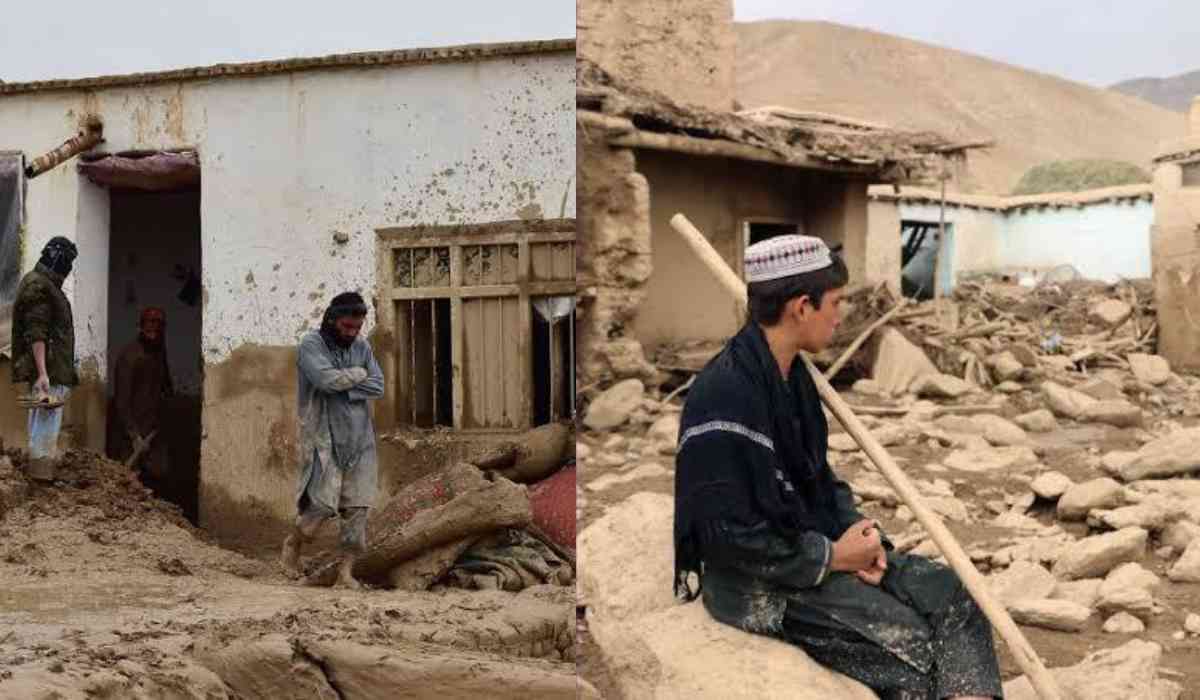Hundreds of lives have been lost as a result of severe flash floods in northern Afghanistan, and more deaths could result from persistent storms in the area. Social media posts show villages being completely destroyed by rushing rivers.
The exceptionally heavy seasonal rains have resulted in over 1,000 destroyed houses and over 300 fatalities, according to the U.N. food agency. Three provinces have seen at least 153 confirmed deaths and 138 confirmed injuries, according to the Taliban's Ministry of Interior Affairs.
Zabihullah Mujahid, the chief spokesman for the Taliban government, said in a social media post on Saturday that “hundreds … have succumbed to these calamitous floods, while a substantial number have sustained injuries”
According to the World Food Programme, Friday night's intense rains in five districts of Baghlan province destroyed over 1,000 homes and resulted in over 300 fatalities. In one of the many areas affected by flooding in the nation in recent weeks, the WFP is giving survivors fortified biscuits.
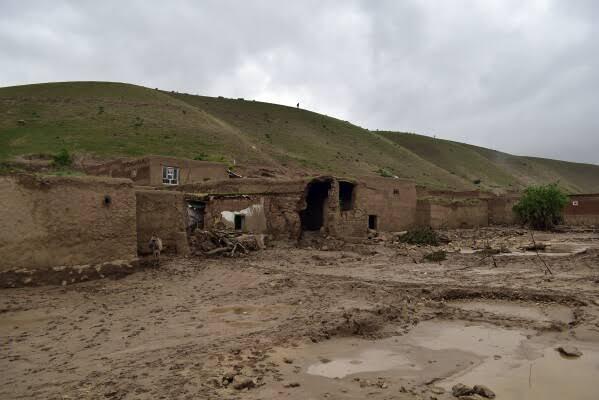
Floods Hit Major Provinces
Several provinces in Afghanistan have been ravaged by floods, leaving behind a trail of destruction and loss. The Borka district of the province witnessed a staggering toll, with over 200 individuals trapped within their homes, succumbing to the merciless forces of nature.
According to statements from spokesman Zabihullah Mujahid, the provinces of Badakhshan, Baghlan, Ghor, and Herat bore the brunt of the catastrophe, with widespread destruction leaving countless families shattered and homes destroyed. The scale of devastation, as described by officials, has led to significant financial losses, exacerbating the plight of affected communities. The aftermath of the floods has plunged these areas into a state of mourning and despair.
The tragedy unfolded amidst a series of floods that have besieged Afghanistan in recent weeks, with the northern province of Baghlan bearing the brunt of Friday's deluge. In neighboring Takhar province, the death toll climbed to at least 20, underscoring the widespread impact of the natural disaster.
Heart-wrenching scenes emerged as videos circulated on social media, depicting distraught individuals gathering outside hospitals in Baghlan, desperately searching for their loved ones. With the grim reality sinking in, officials urged families to prepare for the solemn task of laying their dear ones to rest, highlighting the magnitude of the loss suffered by communities.
The United Nations' International Organization for Migration (IOM) provided grim statistics, revealing that Baghlan alone witnessed over 200 fatalities, with thousands of homes destroyed or damaged in the wake of the floods. In Tishkan district, fears of additional casualties loomed large as floodwaters severed access to an area housing thousands of residents, leaving them stranded and vulnerable.
In Karkar village, residents mourned the loss of their loved ones.
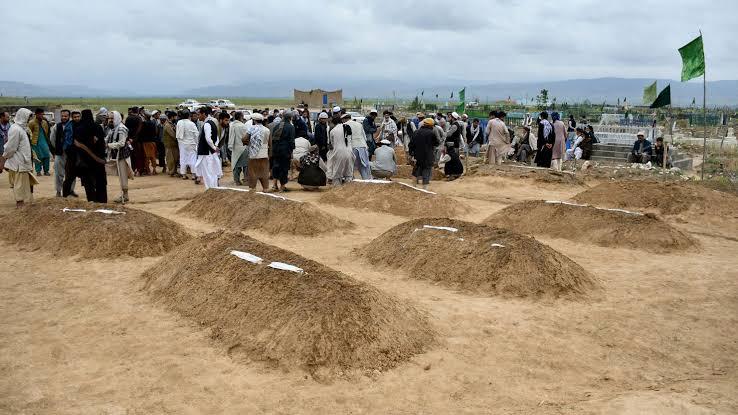
Rescue Operation
The Taliban Ministry of Defense announced on Saturday that the air force had initiated evacuations and transferred over 100 injured individuals in Baghlan to military hospitals. Taliban officials dispatched helicopters overnight to aid civilians following reports of over 100 people stranded.
“By announcing the state of emergency in [affected] areas, the Ministry of National Defense has started distributing food, medicine and first aid to the impacted people,” it said in a statement.
Toll ‘will increase’
Hedayatullah Hamdard, the head of Baghlan’s natural disaster management department, earlier told AFP that the toll “will probably increase”, adding that light rain had continued into the night in multiple districts of the province.
Emergency personnel were “searching for any possible victims under the mud and rubble, with the help of security forces from the national army and police”, Hamdard said.
Tents, blankets and food were provided to some families who had lost their homes, the official added. Residents were unprepared for the sudden rush of water set off by the heavy downpour in recent days, he added.
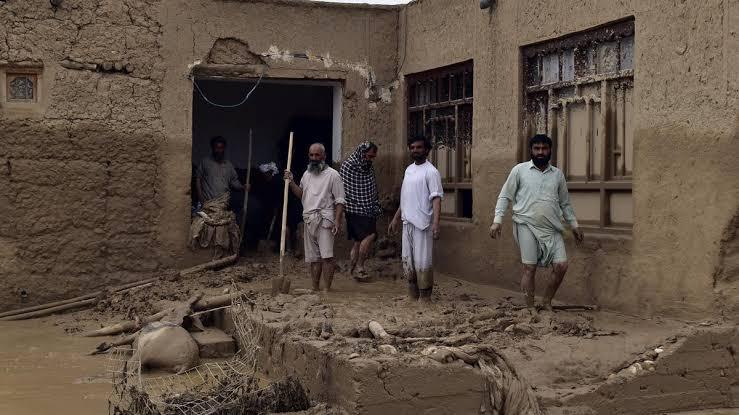
Floods in Afghanistan
Since mid-April, approximately 100 individuals have lost their lives due to floods across 10 provinces in Afghanistan, sparing no region, as reported by authorities. The country has experienced exceptionally heavy rainfall over recent weeks, resulting in numerous fatalities since mid-April.
Mohammad Akram Akbari, the provincial director of natural disaster management in Badakhshan, noted significant financial losses in multiple areas due to floods in the mountainous province. This follows flooding in the west of the country last month, which claimed dozens of lives and left thousands in need of humanitarian assistance.
Impact of Heavy Rains
- In April, heavy rains and flash floods claimed the lives of at least 70 people in the country.
- Approximately 2,000 homes, three mosques, and four schools sustained damage.
- Recent heavy rains, particularly on Friday, resulted in flooding across multiple regions, raising concerns about the increasing death toll.
- The primary road linking Kabul to northern Afghanistan has been shut down.
- Farmlands, crucial for the survival of over 80 percent of the population dependent on agriculture, are now submerged.
- Many people had been left homeless and transportation, water and waste systems were "severely disrupted", the WHO said.
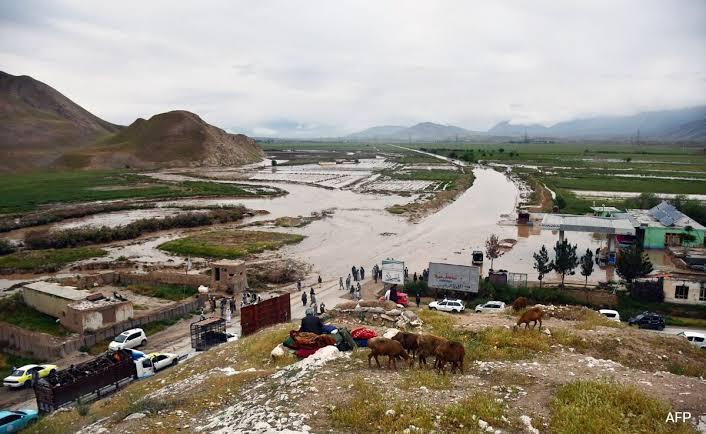
What is Flash Flooding?
Flash flooding occurs when rainfall is so intense that regular drainage systems cannot handle it, often exacerbated by a dry winter that hinders soil absorption. Extensive farmland has been inundated as a result.
In Afghanistan, where poorly constructed homes in remote rural areas are especially susceptible, torrential rain and flooding claim lives annually. Afghanistan ranks among the world's most vulnerable countries to climate change impacts, compounded by its status as one of the poorest nations, enduring decades of conflict, and the recent return of Taliban control.
Recent floods in Afghanistan means the country is vulnerable to the climate crisis, calling for immediate aid and long-term planning from both the Taliban and international stakeholders.
Photo: Multiple Sources
(Inputs from Agencies)
Ⓒ Copyright 2024. All Rights Reserved Powered by Vygr Media.

